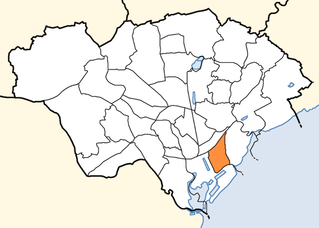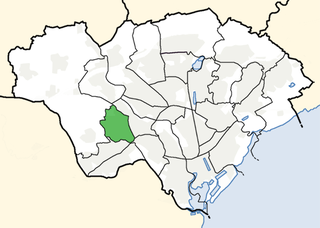| |||||||||||||||||||||||||||||||||||||||||||||||||||||||||||||||||
All 1,271 seats to 22 Welsh councils | |||||||||||||||||||||||||||||||||||||||||||||||||||||||||||||||||
|---|---|---|---|---|---|---|---|---|---|---|---|---|---|---|---|---|---|---|---|---|---|---|---|---|---|---|---|---|---|---|---|---|---|---|---|---|---|---|---|---|---|---|---|---|---|---|---|---|---|---|---|---|---|---|---|---|---|---|---|---|---|---|---|---|---|
| |||||||||||||||||||||||||||||||||||||||||||||||||||||||||||||||||
 Colours denote the winning party with outright control (left), and the largest party by ward (right) Key:
| |||||||||||||||||||||||||||||||||||||||||||||||||||||||||||||||||
Local elections were held in Wales on Thursday 4 May 2017 to elect members of all 22 local authorities, including the Isle of Anglesey, which was last up for election in 2013 due to having its elections delayed for a year. These local elections were held alongside local elections in Scotland and parts of England.

Wales is a country that is part of the United Kingdom and the island of Great Britain. It is bordered by England to the east, the Irish Sea to the north and west, and the Bristol Channel to the south. It had a population in 2011 of 3,063,456 and has a total area of 20,779 km2 (8,023 sq mi). Wales has over 1,680 miles (2,700 km) of coastline and is largely mountainous, with its higher peaks in the north and central areas, including Snowdon, its highest summit. The country lies within the north temperate zone and has a changeable, maritime climate.
Since 1 April 1996, Wales has been divided into 22 single-tier principal areas for local government purposes. The elected councils of these areas are responsible for the provision of all local government services, including education, social work, environmental protection, and most highways. Below these there are also elected community councils to which responsibility for specific aspects of the application of local policy may be devolved.
Contents
- Overview and background
- Eligibility to vote
- Wales-Wide Results
- Individual councils
- Opinion polling
- References
The last elections were in 2012. Normally these elections take place every four years, but the 2017 elections were postponed for a year in order to avoid clashing with the 2016 Welsh Assembly election, which itself was postponed by a year to avoid clashing with the previous year's general election.
The Labour Party had a net loss of 112 council seats, and also lost control of the Blaenau Gwent, Merthyr Tydfil and Bridgend councils. Labour did, however, retain control of Cardiff, Swansea, Newport, and five other councils. The Welsh nationalist Plaid Cymru had a net gain of 38 seats and won control of the Gwynedd Council (the council had shifted to Plaid control in June 2012, and is thus counted in this article as a 'gain'); it also fell just short of controlling the Carmarthenshire County Council. The Conservatives had a net gain of 79 seats, and won control of one council, Monmouthshire; the Conservatives also became the largest party in Vale of Glamorgan and Denbighshire. In ten of the 22 councils, no party had overall control of the council. [2]
The Labour Party is a centre-left political party in the United Kingdom that has been described as an alliance of social democrats, democratic socialists and trade unionists. The party's platform emphasises greater state intervention, social justice and strengthening workers' rights.
Blaenau Gwent County Borough Council is the governing body for Blaenau Gwent, one of the Principal Areas of Wales.

Merthyr Tydfil County Borough Council is the governing body for Merthyr Tydfil County Borough, one of the Principal Areas of Wales.























